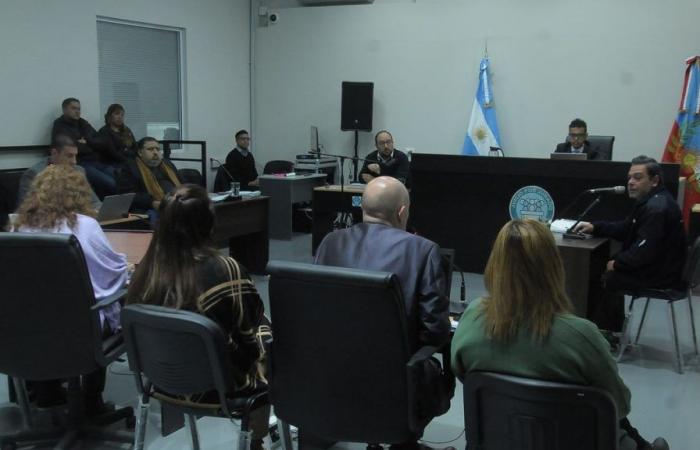June 25, 2024 – 00:47
After learning the reasons for the acquittal of the doctors who had been charged with the death of Melanie Carrazana, who died at the beginning of January 2021 while being transferred from Andalgalá to the Capital, the family will insist on the accusation. The lawyer Pedro Justiniano Vélez, representing Fernanda Gordillo and Walter Carrazana, the parents of the seven-year-old girl, will present the appeal today.
Three doctors had arrived charged with “aggravated manslaughter.” The debate took place in the Third Nomination Correctional Court; It began on May 15 and lasted seven days. Finally, on May 27, after the allegations, the foundations were known. A doctor was acquitted due to lack of accusation. Meanwhile, two doctors, accused only by the complaint – the Prosecutor’s Office had not maintained the accusation against them – were acquitted with the benefit of the doubt.
“We insist that they did not assist the girl; They didn’t see her the first two days. A medical examination was taken into account in which the same doctors in the examination clarify, as when they declared in debate, that they only analyzed what was done on Sunday, January 3, when she was urgently referred to the Capital. She was referred to the Capital and the only questionable thing is that she came without a doctor. The expertise clearly says that they do not analyze testimonies or what was done in previous days because it is the work of Justice. The mother said that the girl was not checked in the previous days. “They didn’t see her and just gave a diagnosis,” said the lawyer.
During the pleadings, the complainant had considered that Melanie “did not receive due attention” from the two accused doctors.
In addition, he stressed that there was a violation of the Rights of the Child. Not only was she deprived of the right to health, but she at the same time “was discriminated against because she was poor.”
For the complaint, the first doctor did not examine the girl but prescribed medication. “She omitted controls and consultation,” she said. While the second doctor did not examine her properly, she maintained. The same doctor had asked if they had money to carry out laboratory tests on a private basis. “She did not require analysis for that same day. It was a public hospital, she should not ask if she had money,” she had stressed.
For the complaint, malpractice was proven because both doctors gave two different diagnoses. “The doctors should have reviewed it properly. They gave two wrong diagnoses due to lack of review.” In relation to the cause of death, she valued the testimony of the doctor who performed the autopsy. This professional observed the presence of bacteria, the cause of death. “The bacteria was alive. If she had been medicated with amoxicillin –penicillin-, the result would change. He was without antibiotics. They didn’t bother to review it. An inadequate examination of the girl was proven,” she said.
At the close of his argument, the plaintiff maintained the accusation and requested that both defendants be disqualified from practicing the profession for 10 years. For one of the doctors he requested a sentence of four years in prison and for the second defendant, four years and six months.
Basics
“The prosecution used generalities lacking precision about those who said this or that statement, insisting that ‘everyone’ affirmed what they defended. But no professional, neither the official experts, nor the doctors offered by the parties could corroborate, even with a minimal degree of probability, that with these laboratory analyzes the cause of the sepsis and/or thrombocytopenic purpura could have been detected early. idiopathic that would have caused the death of the girl whose onset is still uncertain and its development was torpid,” indicated correctional judge Javier Herrera in the grounds.
In the judge’s opinion, none of these assumptions were proven. To demonstrate negligence and incompetence, the complaint relied on inferences derived from multidirectional evidence, the deduction of which always involves more than one reasoning, he indicated. Furthermore, he assessed that none of the experts called to rule could conclude that the actions of the accused were contrary to the technical and scientific rules that guide the art of healing.
“This oral debate has left a state of doubt in my spirit, which today is intertwined with the disappointment of not having arrived at positive or negative certainty regarding what happened, and thus clearing up the uncertainty of a family that has been destroyed with the departure of a girl who is only seven years old,” he remarked.
#Argentina


